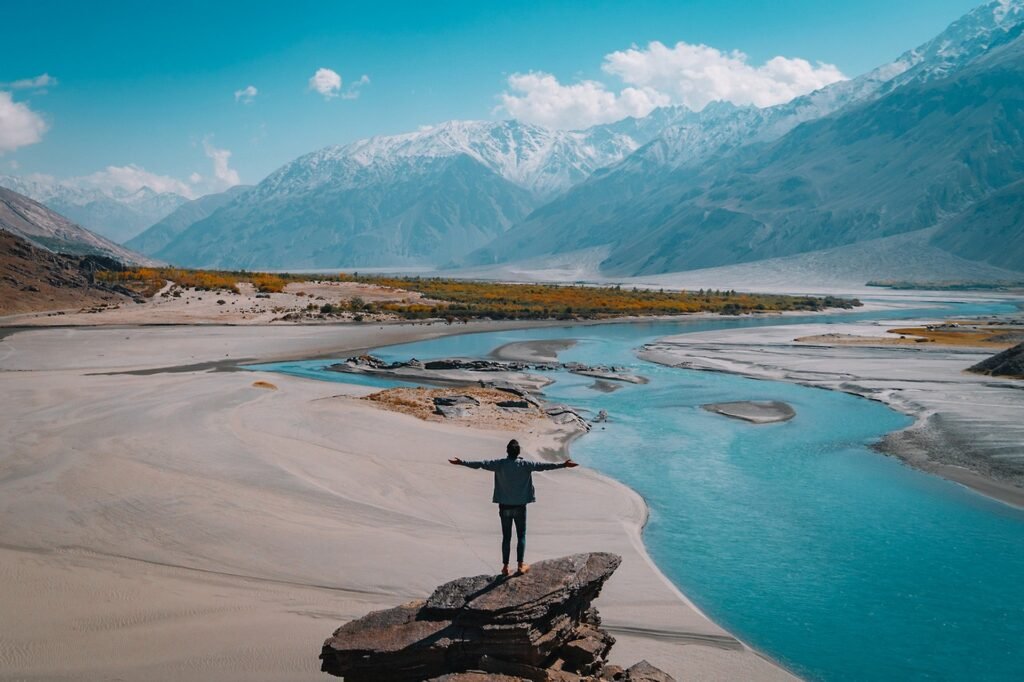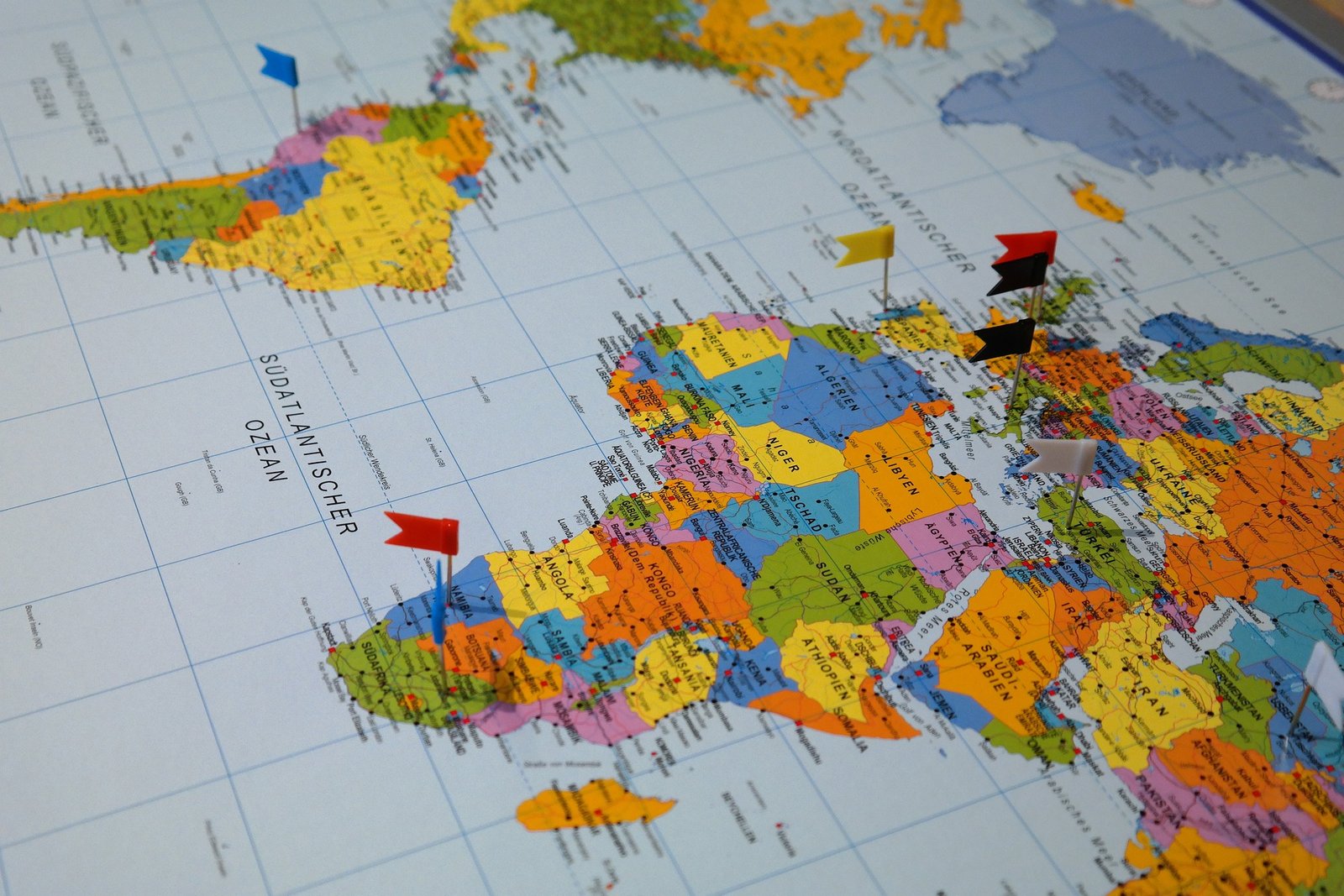
So, you’re bitten by the travel bug! Welcome to the exciting world of exploration and adventure. Traveling can be one of the most rewarding experiences in life. Whether you’re looking to explore new cultures, take a break from routine, or simply see more of the world, getting started can feel overwhelming. This guide is designed to help novice travelers navigate the process of planning their first trip—from choosing a destination to budgeting and packing. With these tips, this beginner’s travel guide on how to start traveling will have you well on your way to your first adventure.
1. Choosing Your Destination
The first step in planning any trip is deciding where to go. With so many incredible places to visit, this can be a difficult choice. Here are a few tips to help you narrow it down:
Consider Your Interests
When embarking on your first travel adventure, selecting the right destination is crucial. It’s essential to align your choice with your personal interests and preferences to ensure an enjoyable experience. Start by considering what excites you: are you fascinated by historical landmarks, or does the idea of lounging on a sunny beach appeal more? Understanding your hobbies and passions can guide you towards a destination that resonates with you.
- Nature Enthusiast? Look into destinations known for their natural beauty like national parks, beaches, or mountains.
- History Buff? Explore cities rich in historical landmarks and museums.
- Food Lover? Consider destinations known for their culinary scenes, such as Italy, Japan, or Thailand.
The climate of your potential destination is another critical factor. If you prefer milder weather, you might want to avoid regions known for extreme temperatures. Las Vegas in the heat of the summer although beautiful may not be the best place for you. Consider the local culture as well; immersing yourself in a culture that intrigues you can significantly enhance your travel experience. Looking into seasonal events and holidays in the destination area can also shape your decision, as these events might offer unique experiences or cause overcrowding, depending on your personal preferences regarding such occurrences.
Each type of destination comes with its own set of pros and cons, especially for beginners. Cities offer the comfort of numerous amenities and a variety of attractions but can be overwhelming due to their bustling nature. Beach destinations promise relaxation and scenic views but could be less appealing if you’re not a fan of coastal activities. Nature-oriented spots, such as national parks, provide tranquility and stunning landscapes but require a tolerance for outdoor conditions and possibly limited facilities.
Utilizing tools and resources is key to making an informed choice. Engage with travel blogs, forums, and social media to gain insights from experienced travelers. These platforms often provide firsthand accounts, tips, and detailed information about various destinations. This research can offer a more realistic picture of what to expect and help you make a well-rounded decision for your travel debut.

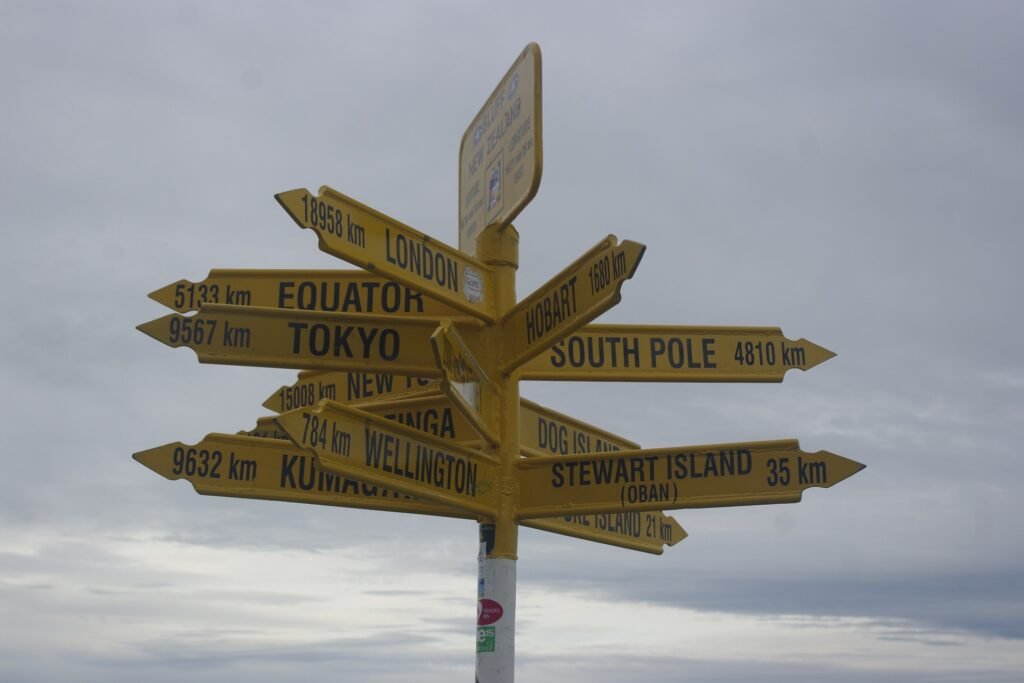
Assess Travel Restrictions and Safety
Especially if you’re new to traveling, it’s essential to consider the safety and accessibility of your destination. Check travel advisories, entry requirements (like visas), and health guidelines to ensure a smooth trip.
Budget-Friendly Options
If you’re on a tight budget, consider destinations where your money will go further. Southeast Asia, Eastern Europe, and South America offer many affordable options without compromising on experience.
2. Creating a Travel Budget
One of the foundational steps in planning your travel journey is creating a realistic travel budget. By estimating costs accurately, you can ensure a smooth and financially manageable trip. To start, consider key expenditure categories: transportation, accommodation, food, and activities.
Flights and Transportation
Transportation often constitutes a significant portion of your travel budget. Compare prices for flights, trains, buses, or car rentals to find the most cost-effective options.
Flight Costs: Start by searching for flights early. Utilize travel comparison websites and apps like Skyscanner or Google Flights to find the best deals. Consider booking well in advance to secure lower fares
Local Transportation: Research how you’ll get around once you arrive. Public transportation is usually more affordable than taxis or car rentals.
Accommodation
Accommodation costs vary widely depending on your destination and preferred level of comfort. Research various options. Look for properties with high ratings and positive reviews, and consider deals or discounts for longer stays. Being flexible with your travel dates can also help you find more affordable rates.
- Hostels and Budget Hotels: These are great options for saving money, especially in major cities.
- Airbnb: Renting an apartment or room can often be cheaper than hotels and gives you a more local experience.
- Couchsurfing: For the ultra-budget traveler, staying with locals for free is an option, though it requires careful planning.
Daily Expenses
Food expenses can add up quickly if not carefully managed. To stick to your travel budget, consider dining at local eateries, street food vendors, or even cooking your own meals if your accommodation offers kitchen facilities. Additionally, research the customary tipping practices in your destination to avoid unexpected costs.
Budgeting for activities requires some foresight. Prioritize must-see attractions and explore free or low-cost alternatives like public parks, museums with free admission days, and self-guided walking tours. Pre-booking tickets for popular attractions online can often save you money and time.
Before setting off on your adventure, strategize ways to save money. Set aside a specific amount every month in a dedicated travel fund, take advantage of credit card rewards programs, and look for seasonal travel deals. Utilize discount cards such as the International Student Identity Card (ISIC) or Senior discounts if applicable.
Lastly, don’t overlook potential unexpected costs. Include a buffer for emergencies or unexpected expenses, such as medical emergencies, lost luggage, or itinerary changes. Having travel insurance can provide additional peace of mind and financial protection.
By meticulously planning your travel budget and incorporating these strategies, you can avoid unnecessary financial stress and fully enjoy your travel experience.
3. Essential Packing Tips
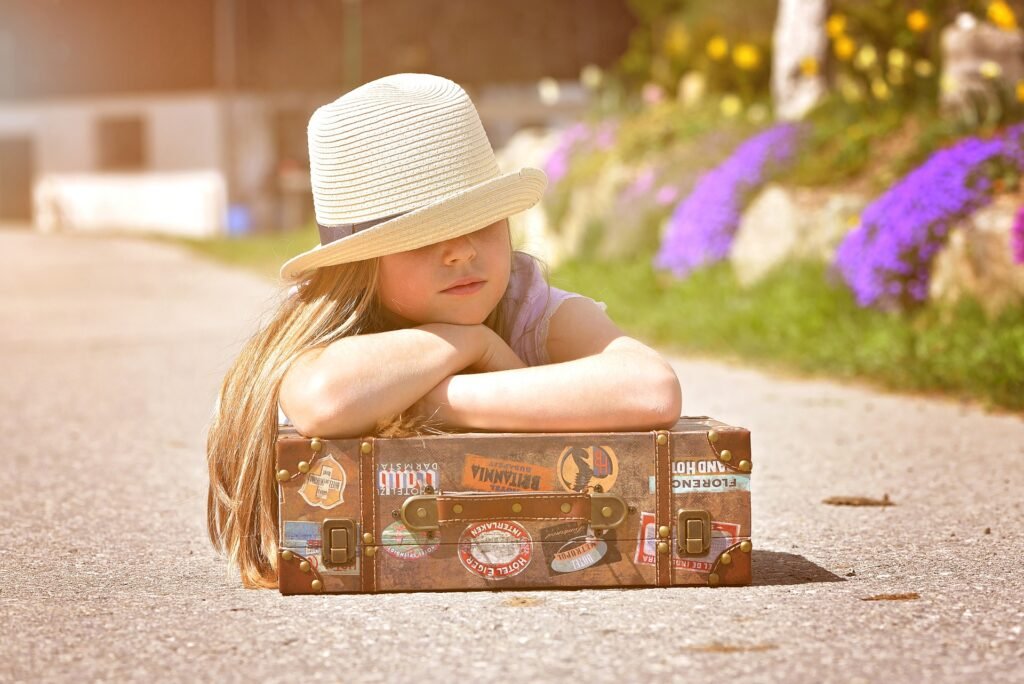
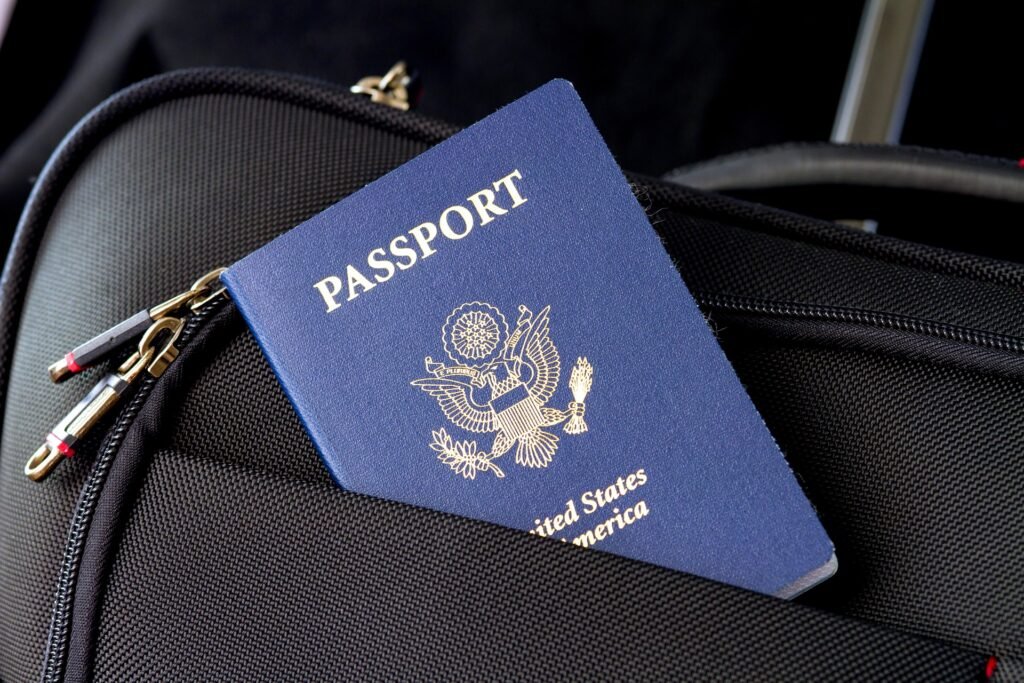
When embarking on your first travel adventure, packing efficiently and effectively is crucial. For beginner travelers, understanding what to pack can make a significant difference in the quality of your experience. Below is a comprehensive checklist, ensuring that you bring along everything you need:
Clothing: Tailor your clothing choices based on the climate of your destination and the activities you have planned. Include versatile pieces that can be layered, such as lightweight shirts, sweaters, and a waterproof jacket. Rubber slippers or sandals for beach trips and sturdy walking shoes are essential. Don’t forget undergarments, sleepwear, and a swimsuit if relevant.
Toiletries: Opt for travel-sized toiletries to save space. Essentials include a toothbrush, toothpaste, deodorant, shampoo, conditioner, and any personal hygiene products. A small first aid kit with band-aids, antiseptic wipes, and pain relievers can also be incredibly handy.
Travel Documents: Ensure you carry all necessary travel documents, including your passport, visas, travel insurance details, hotel reservation confirmations, and printed copies of critical information. It is also wise to have a digital backup of all these documents.
Electronics: Bring along essential electronics like your phone, charger, power bank, and if necessary, a laptop. Adapters and converters might be needed depending on the country you are visiting. Also, pack a pair of earphones or noise-canceling headphones for a more comfortable journey.
Luggage: Choosing the right luggage can significantly simplify travel. A sturdy, carry-on-sized bag can be sufficient for short trips and help avoid checked baggage fees and delays. For longer trips, a lightweight, durable suitcase with wheels is recommended. Consider using packing cubes to keep your items organized and easy to access.
When it comes to seasonal packing tips, always check the weather forecast and pack accordingly. A trip to a warm destination might call for sun hats and sunscreen, while cold locations require thermal layers and warm accessories.
Efficient packing not only makes your travel more enjoyable but also reduces the stress of managing your belongings. Adapt these packing tips to suit your specific travel needs, and you’ll be well-prepared for any adventure that comes your way.
Optional, but Helpful
- Travel Guidebook: Even in the age of smartphones, a guidebook can be a handy offline resource.
- Reusable Water Bottle: Stay hydrated without contributing to plastic waste.
- Portable Snacks: Great for long travel days or when you can’t find something to eat that suits your taste or dietary needs.
4. Planning Your Itinerary
An itinerary helps you make the most of your time and ensures you don’t miss out on must-see attractions. However, it’s also important to leave room for spontaneity.
Prioritize Key Activities
Research the top attractions and experiences in your destination. Prioritize the ones you most want to see or do, but don’t overbook your days. Leave space for relaxation and unexpected discoveries.
Book in Advance
Some attractions require advance booking, especially during peak travel seasons. Museums, tours, and popular restaurants can sell out quickly, so plan ahead.
Stay Flexible
While it’s good to have a plan, travel is unpredictable. Be open to changing your itinerary if you discover something new or if plans fall through.
5. Getting Ready for Departure
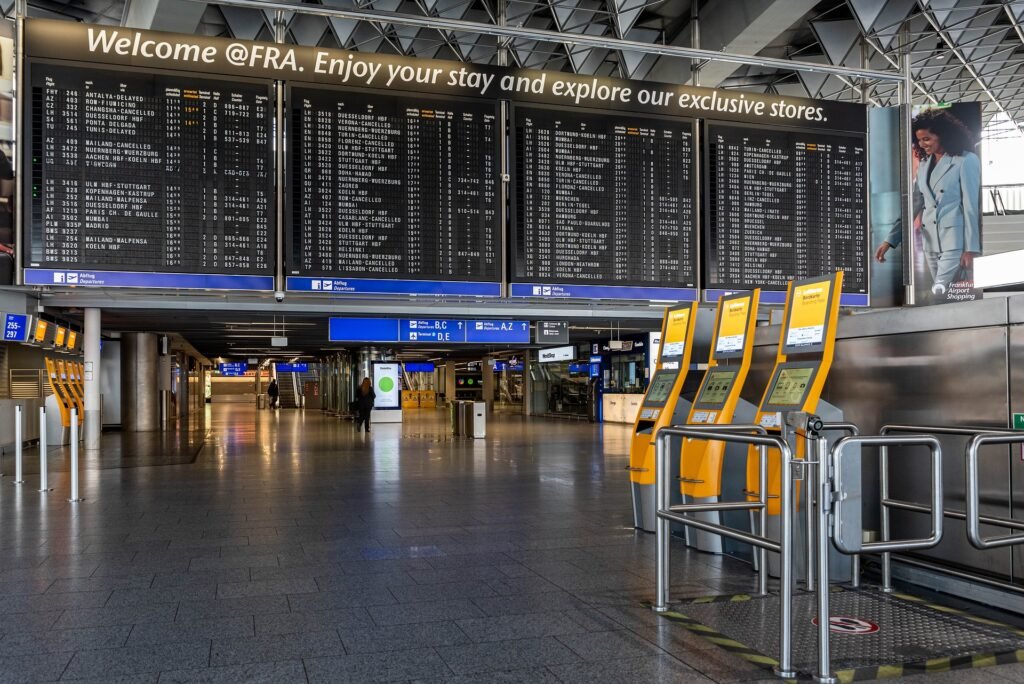
As your departure date approaches, there are a few final steps to ensure everything goes smoothly.
Final Checks
- Reconfirm Bookings: Double-check your flight, accommodation, and any tours or activities you’ve booked.
- Notify Your Bank: Let your bank know you’ll be traveling to avoid your card being blocked for suspicious activity.
- Pack Early: Aim to have your suitcase packed a day or two before departure to avoid last-minute stress.
Preparing for the Journey
- Arrive Early at the Airport: Give yourself plenty of time to get through security and find your gate.
- Stay Calm and Excited: Travel can be stressful, but remember that you’re about to embark on an exciting adventure. Relax and enjoy the journey!
6. Travel Tips for First-Time Travelers
Embarking on your first travel adventure can be both exciting and daunting. To help you navigate this journey with ease, here are some essential tips. Firstly, when booking flights and accommodations, use reliable websites and compare prices. It’s beneficial to book in advance to secure better deals. Consider platforms like Skyscanner, Expedia, or directly booking through airline and hotel websites.
Understanding travel insurance is crucial. It provides a safety net for unforeseen events, such as medical emergencies or trip cancellations. Evaluate different plans and choose one that covers a broad range of potential issues. Safety should be a top priority. Research your destination’s safety guidelines and be mindful of your surroundings. Utilize apps like Google Maps for navigation to avoid getting lost, and keep emergency contact numbers handy.
Language barriers can pose challenges. Learning basic phrases in the local language or using translation apps can ease communication. Additionally, addressing jet lag involves adjusting your sleep schedule a few days before travel, staying hydrated, and getting sunlight exposure upon arrival to reset your body clock.
Connecting with locals and fellow travelers can enrich your experience. Participate in local tours, join travel forums, or use social platforms like Couchsurfing or Meetup. Such interactions offer insights into the culture and hidden gems of your destination. Finding reliable information is imperative. Rely on reputable travel blogs, official tourism sites, and verified travel guidebooks for accurate details.
Sticking to your budget is essential for a stress-free trip. Plan your expenses meticulously and avoid spur-of-the-moment purchases. Consider using budget tracking apps to monitor your spending. Opt for local eateries over touristy spots for authentic and affordable meals. Also, don’t hesitate to use public transportation, which is often cheaper and a great way to explore the area.
Conclusion
Starting your travel journey may seem daunting, but with careful planning and the right mindset, it can be an incredibly fulfilling experience. Seasoned travelers often emphasize the importance of flexibility and open-mindedness. From choosing the right destination to packing efficiently and budgeting wisely, this guide covers all the basics to help you get started. Remember, every traveler was once a beginner—embrace the excitement and the unknown, and you’ll quickly find your rhythm on the road. Safe travels!
Why not check take a look at our top 10 bucket list destinations, you never know you may get inspired.
*As an Amazon Associate, I earn commission from qualifying purchases.

